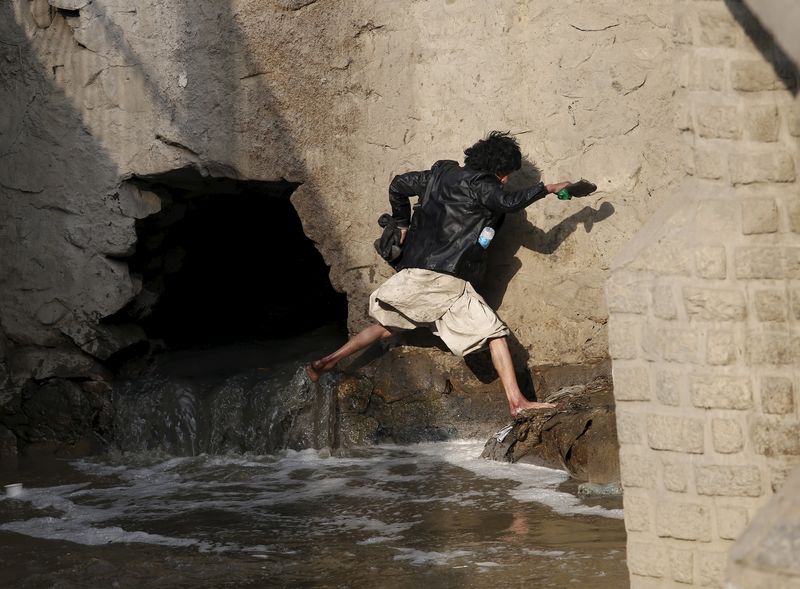By Mirwais Harooni
KABUL (Reuters) - Afghan officials have opened a new drug treatment centre in an abandoned NATO military base in Kabul, in the latest attempt to stamp out the country's massive problem of drug abuse.
Afghanistan is one of the world's biggest sources of opium, producing around 3,300 tonnes last year, despite a drop of 48 percent in output.
With the economy in ruins after decades of war and unable to provide jobs for young Afghans, demand for the temporary relief provided by drugs is high.
Camp Phoenix, a former training camp on the edges of Kabul set up by the U.S. army in 2003, will take in around 1,000 homeless drug addicts who will receive food, medical attention and treatment, said Public Health Minister Ferozuddin Feroz.
"We give them a proper shave, they will take a shower, winter clothing and treatment will follow," he said, showing reporters around the facility, which offers a 45-day course of treatment for homeless addicts.
"We will return them as normal members of society."
The effort is the latest in a long series of anti-drug initiatives backed by the government and its international partners, but it is only a very small step to tackle a sprawling problem, and many remain sceptical.
Police regularly round up addicts who shelter in areas such as the Pul-e Sokhta bridge in the western part of the capital, but successive governments have been powerless to resolve the problem.
In May, a U.S.-funded report said around 1.9 million to 2.4 million Afghan adults may be drug users, from among a population of about 30 million, with drugs found in more than 30 percent of homes.
To counter this situation, the country has just 123 treatment centres, sufficient to treat just over 10 percent of opium and heroin users. But even addicts who go through the centres often fall back into drug use.
"I have received five rounds of treatment already, but am still using," said Sayed Dawod, one of the addicts at the new centre. "There is no proper treatment in Afghanistan."
Ministers say they are aware of the threat from the drug problem, not just to public health but also how it feeds endemic corruption in the government, from police officials on up.
Feroz was himself attacked on Sunday by a dealer who tried to stab him with an infected needle during an operation to collect addicts and take them to the new centre for treatment.
But officials have only limited ability to curb a billion-dollar industry protected by powerful regional interests and controlled in part by warlords and Taliban militants who use the proceeds to fund their insurgency.
"Leaders of the unity government know the threat illegal drugs pose to our society and they are committed to dealing with this," said Salamat Azimi, the counter narcotics minister.
The failure of past efforts leaves many uncertain of success this time, however.
Najibullah, an addict who, like many Afghans, goes by one name, was dubious as he saw how few addicts got on the buses going to the treatment centres.

"This is for show," he said. "If the government wants to bring about change and treat addicts properly, they have to put more pressure on police to arrest those who sell illegal drugs."